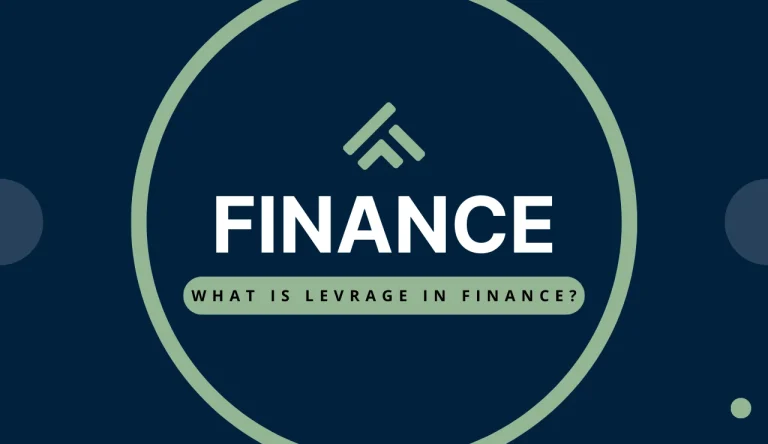What Is Seller Financing
Have you ever heard the saying, ‘Don’t put all your eggs in one basket’? Well, when it comes to purchasing a home or property, this sentiment couldn’t be more accurate. That’s where seller financing comes into play. So you must know What Is Seller Financing!
Seller financing is like having multiple baskets for your eggs – it provides an alternative method of obtaining funding for a real estate purchase that doesn’t rely solely on traditional mortgage lenders. In simple terms, seller financing occurs when the person selling the property acts as the lender and provides the buyer with a loan to finance their purchase. This arrangement offers numerous advantages for both buyers and sellers alike.
For buyers, seller financing can offer more flexibility regarding credit requirements and down payments. It also allows them to bypass the rigorous approval process of traditional mortgages. Sellers, on the other hand, benefit from receiving regular income through interest payments and potentially higher selling prices.
However, like any financial option, there are drawbacks and risks involved in seller financing that need careful consideration. In this article, we will delve deeper into what exactly seller financing entails and explore its benefits, limitations, and how it differs from traditional mortgages. So let’s dive in!
Key Takeaways
- Seller financing is an alternative method of obtaining funding for a real estate purchase.
- It offers flexibility in terms of credit requirements and down payments for buyers.
- Sellers benefit from regular income through interest payments and potentially higher selling prices.
- Drawbacks and risks include the risk of default by the buyer and a more extended payback period compared to traditional financing methods.
Definition and Explanation of Seller Financing
So, you’re probably wondering what seller financing is, right? Well, let me break it down for you.
Seller financing refers to a real estate transaction where the seller acts as the lender and provides financing to the buyer instead of relying on traditional bank loans. This arrangement offers several benefits for both parties involved. For buyers, it can be an attractive option if they have difficulty obtaining a mortgage or want more flexible terms. They can negotiate lower interest rates and avoid some of the stringent requirements imposed by banks.
On the other hand, sellers benefit from receiving regular income through monthly payments and potentially selling their property faster. The seller financing process typically involves negotiating terms between the buyer and seller, including the interest rate, repayment period, and any collateral or down payment requirements. Both parties should conduct thorough due diligence to ensure they enter a fair agreement that protects their interests.
It’s essential to consult with professionals such as real estate agents or attorneys specializing in seller financing transactions to navigate this unique process successfully.
Related Posts:
Advantages of Seller Financing for Buyers
Imagine being able to purchase your dream home without having to go through a traditional bank loan process or dealing with complicated financing options. Seller financing offers buyers a unique opportunity to achieve just that. Here are some advantages of seller financing for buyers:
- Flexibility: With seller financing, buyers have more flexibility in negotiating the terms and conditions of the loan. This can include lower interest rates, longer repayment periods, or even the ability to customize payment schedules.
- Easier qualification: Traditional bank loans often require extensive documentation and strict credit requirements. Seller financing allows buyers with less-than-perfect credit scores or self-employed individuals to qualify for a loan more quickly.
- Faster closing process: By bypassing the lengthy approval process of traditional lenders, buyers can enjoy a faster closing process when opting for seller financing. This means getting into your new home sooner.
Buyer advantages in seller financing include greater flexibility, easier qualification, and a faster closing process than traditional bank loans.
Benefits of Seller Financing for Sellers
Sellers who offer financing options to buyers can experience a whirlwind of financial benefits that’ll leave them feeling like they’ve hit the jackpot.
Seller financing offers several advantages for sellers, making it an enticing option in real estate transactions. Firstly, by offering seller financing, sellers can attract a larger pool of potential buyers who may not qualify for traditional bank loans. This increases the chances of selling the property quickly and at a higher price.
Additionally, sellers can negotiate favorable terms such as interest rates and repayment schedules, allowing them to earn more money over time. Moreover, seller financing provides sellers with a steady income stream through monthly mortgage payments. By acting as the lender, sellers also have the opportunity to earn interest on their investments, further increasing their profits.
Overall, seller financing presents numerous financial benefits and advantages for sellers in the real estate market.
Drawbacks and Risks of Seller Financing
However, there are certain drawbacks and risks associated with opting for seller financing in real estate transactions. While seller financing can be a convenient option for buyers and sellers, it is essential to consider the potential risks involved.
One major drawback is the risk of default by the buyer. If the buyer fails to make payments or encounters financial difficulties, the seller could be left with a property they didn’t plan on owning again. Additionally, seller financing may result in a longer payback period compared to traditional financing methods, which means that sellers might have to wait longer to receive their full payment.
Another risk is that if the property depreciates in value over time, the seller could receive less money than anticipated.
How Seller Financing Differs from Traditional Mortgage
When comparing seller financing to a traditional mortgage, there are several key differences to consider.

- Firstly, the lender and terms of the loan can vary significantly between the two options. With seller financing, the seller acts as the lender and may offer more flexible terms than a traditional bank or mortgage company.
- Secondly, the loan approval process may be less stringent with seller financing, as it often involves direct negotiation between buyer and seller rather than meeting strict criteria set by a financial institution.
- Lastly, closing costs and fees can also differ between these two options, with seller financing potentially offering lower fees or even no closing costs at all.
Lender and Terms of the Loan
If you’re looking for seller financing, the lender and terms of the loan are crucial factors to consider. Lender selection plays a significant role in determining the success of your seller financing arrangement.
It’s essential to choose a reputable lender who understands the intricacies of this type of transaction and has experience working with sellers. Look for lenders with a track record of providing fair and competitive loan conditions, such as reasonable interest rates, flexible repayment terms, and low closing costs.
Regarding loan conditions, thoroughly review all the terms before signing any agreements. Attention to critical details like the interest rate, payment schedule, and any potential penalties or fees associated with early repayment. Additionally, consider whether any contingencies in place could affect your ability to secure financing. Understanding these elements will help you make an informed decision and ensure the lender and loan terms align with your financial goals.
Choosing the right lender and carefully reviewing the loan conditions are essential when seeking seller financing. Taking the time to research different lenders and understand all aspects of the loan agreement will ultimately lead to a successful seller financing experience.
Loan Approval Process
One crucial aspect to consider during the loan approval process is ensuring that you have a thorough understanding of the lender’s requirements and criteria. This will help you navigate the loan application and credit check process more efficiently. When applying for seller financing, it is essential to provide all necessary documents and information requested by the lender.
This may include personal financial statements, tax returns, bank statements, and proof of income. The lender will then conduct a credit check to assess your creditworthiness and determine if you meet their lending standards. They will evaluate your credit score, debt-to-income ratio, and payment history. It is essential to maintain good credit and address any negative marks on your credit report before applying for a loan to increase your chances of approval.
| Loan Application Requirements | Credit Check Factors | Lending Standards |
|---|---|---|
| Personal Financial Statements | Credit Score | Debt-to-Income Ratio |
| Tax Returns | Payment History | Income Verification |
| Bank Statements | Debt Load | Employment History |
| Proof of Income | Public Records | Collateral Value |
Understanding the loan application process and preparing for the credit check are crucial to obtaining seller financing. By meeting the lender’s requirements and having a solid credit profile, you can enhance your chances of getting approved for a loan.
Closing Costs and Fees
To make the loan process more transparent, it’s essential to understand that closing costs and fees are an inevitable part of obtaining a loan. Regarding seller financing, these costs can vary depending on the property value and location. Typically, closing costs include title search fees, attorney fees, appraisal fees, and recording fees. However, as a buyer in a seller financing agreement, you may have some room for negotiation regarding these costs.
One effective negotiation strategy is to request the seller to cover a portion or even all of the closing costs. This can help reduce your upfront expenses and make the deal more favorable. Additionally, you could also negotiate for a lower interest rate in exchange for paying higher closing costs. Remember that each transaction is unique and there may be different ways to negotiate closing costs with the seller. Doing thorough research on average closing costs in your area will give you an advantage during negotiations.
Case Studies and Success Stories of Seller Financing
Seller financing has proven to be a highly effective strategy, as evidenced by numerous case studies and success stories. Here are some examples of how individuals have benefited from this type of financing:

- John, a first-time homebuyer, was able to purchase his dream house through seller financing. He avoided the hefty closing costs and fees associated with traditional loans, saving thousands of dollars.
- Mary, a real estate investor, used seller financing to acquire multiple properties without relying on banks or other lenders. This enabled her to grow her portfolio and generate passive income quickly.
- Mike, a small business owner, utilized seller financing when purchasing commercial property for his expanding company. By negotiating favorable terms with the seller, he was able to secure affordable monthly payments that fit within his budget.
- Sarah and Tom could sell their property quickly by offering seller financing. This attractive option attracted more buyers and allowed them to close the deal faster than if they had relied solely on traditional financing methods.
- Jane, a retiree looking for a steady income, became the lender in a seller finance transaction. She now receives regular monthly payments from the buyer while enjoying higher interest rates than other investment options.
These real-life examples demonstrate how seller financing can be a flexible and beneficial solution for buyers and sellers in various situations.
Frequently Asked Questions
Concluding “What Is Seller Financing”
Seller financing is a viable option for buyers and sellers in the real estate market. It offers flexibility and convenience to buyers who may not qualify for traditional mortgages while providing sellers with an opportunity to sell their property quickly and potentially earn a higher return on investment.
However, it’s important to note that seller financing comes with risks and drawbacks. According to a recent study by the National Association of Realtors, approximately 9% of all residential real estate transactions in the United States involve some form of seller financing. This statistic highlights the growing popularity and acceptance of this alternative financing method in today’s market.






